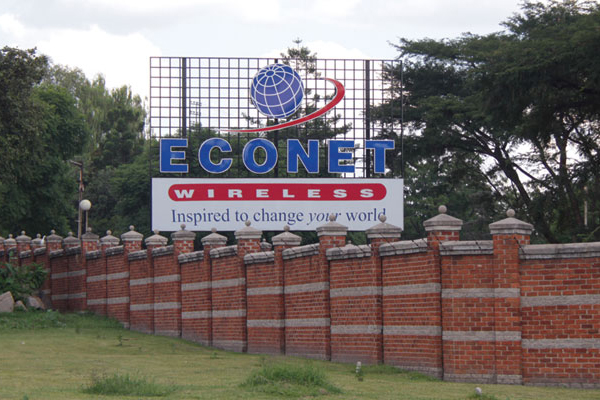
BY OWN CORRESPONDENT
Econet Wireless says it is actively working to deliver good network service to its customers despite an increase in thefts, vandalism and power outages.
Zimbabwe’s telecom companies are battling to keep their networks up and maintain reasonable quality of service following above-normal rainfall that has damaged access roads to critical network sites.
All three local mobile network operators — Econet, NetOne and Telecel — are already facing serious viability challenges due to rising input costs, the shortage of foreign currency and varying levels of legacy debt.
A sector performance report released last week revealed that operating and maintenance costs for mobile network operators, that in some cases are having to make do with ageing equipment, rose by 125% in the last quarter of 2020.
Econet Wireless, the largest mobile operator by coverage, network investment and subscriber base, said it was working with national power utility, Zesa Holdings, to address the challenge of power outages affecting its network service.
“Our technical teams are working with their counterparts at Zesa to assist with materials and with transport for remedial and repair works to restore power supply to our sites in various parts of the country,” said Edwin Banda, the company’s chief technology officer.
“We have also moved to mitigate the power challenges by deploying off-grid power solutions, specifically solar PV systems, on a number of our base stations.
- Chamisa under fire over US$120K donation
- Mavhunga puts DeMbare into Chibuku quarterfinals
- Pension funds bet on Cabora Bassa oilfields
- Councils defy govt fire tender directive
Keep Reading
“We have also stepped up our deployment of sustainable energy solutions at some of our critical sites, in addition to the large solar PV systems that we have deployed on our core network buildings, to guarantee uninterrupted power supply to our core network systems,” he said.
Besides thefts and power outages, Econet says it is also dealing with the challenge of accessing remote sites dotted around the country.
Incessant rains have rendered the majority of access roads to some of the network’s out-of-town sites impassable for purposes of routine maintenance, refuelling and site upgrades, the company said.
“We currently have 142 access roads to our sites that have been damaged by the recent rains, with 30 of those sites totally rendered inaccessible.
“But our teams are doing everything possible, against all odds, to find ways to access the sites so that they carry out service and maintenance work,” Banda said.
Econet lamented the increase in the number of thefts at base station sites, saying it contributed to network downtimes in many areas.
“Sadly the number of thefts has increased, with one province in the southern region experiencing a significant spike in vandalism incidents in the past year alone,” Banda said.
“And so to address this, we have beefed up security at our sites and continue to work closely with the police to apprehend the offenders and bring them to account.”
The latest industry report by the Postal and Telecommunications Regulatory Authority of Zimbabwe (Potraz) showed that despite the challenges in the operating environment, Econet increased its mobile internet and data traffic market share from 67,7% in the third quarter to 78,4% in the fourth quarter of 2020, in part due to superior investment in 3G and 4G networks across the country.
According to Potraz, Econet had deployed a total of 5 003 base stations by the end of last year, which translates to 60% of the country’s base station infrastructure market share.
Econet’s infrastructure includes 2 627 2G base stations, 1 650 3G base stations and 726 LTE base stations.
Meanwhile, Econet said it had commissioned a total of 12 new sites countrywide in the past three months, with an additional 18 sites expected to be up by May 2021.











